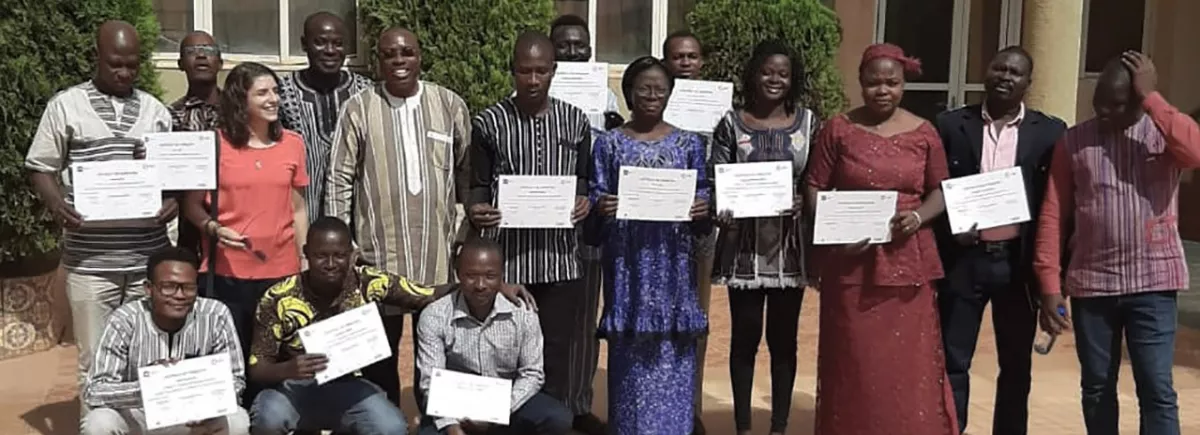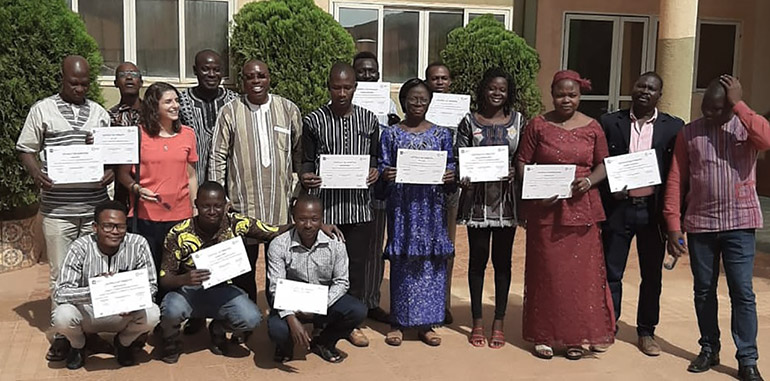
“Identifying the cornerstones of the profession”: training in the basic principles of journalism in Sahel
Related project
MediaSahelBetween August and November 2020, MediaSahel provided training for 144 radio journalists on the fundamental rules of their profession, in Burkina Faso, Mali and Niger.
Testimonies.
“This training course enabled me to identify the cornerstones of the profession”, says Dabouhan Rachelle Tyennou, host of an education programme on Radio Parana which broadcasts in the town of San, in the Ségou region in central Mali. Holding a Masters in the science of education, this young woman started work as a radio host without any journalism training. Her career changed in 2020. She was selected to attend a training course on the fundamentals of journalism arranged by the MediaSahel team: “This changed my way of working in a great many ways. How to find a topic which is relevant to our listeners, what angle to take on a topic, how to prepare for an interview, how to produce sound on the radio, how to build a profile... I knew nothing about any of these issues before this training course”, she says.
Mamadou Touré, a journalist with Kanaga de Dioro radio in Mali, started out in the written press in 2010 before moving into radio three years ago. He learned on the job, so had certain gaps in his knowledge, particularly, he says, from an ethical perspective: “I had no knowledge of the basic concepts, which are essential to the work of a journalist. MediaSahel gave us the opportunity to acquire the necessary knowledge and expertise. Now, I can produce accessible features which take the right angle and are interesting to listeners”, he says.
Antoine Yaogo, originally a teacher and now a sports host on the rural radio station RTB, also benefited greatly from the training course: “It enabled me to improve my skills in writing articles and conducting interviews. Above all, it helped me to gain a better grasp of the topic and angle when writing an article”.

Improving the methods used
In Niger, 85% of the participants, both female and male, believe that they learned new technical skills and improved their knowledge through this training course. One participant says that the “Proche Utile Nouveau et Intéressant” [Relevant, Useful, New and Interesting] (PUNI) approach developed by MediaSahel enabled him to improve his methodology: “with PUNI, I can get closer to my listeners by choosing topics in line with their fields of interest. I have also learned how to position myself in front of a microphone for improved sound quality, and some diction exercises so that the listener does not struggle to hear”. Another participant is of the view that her “method of writing an article which complies with all the ethical rules has changed; along with team work, precision and application of the fundamentals of journalism within my writing”.
The attendees will have further opportunities to enhance their skills, through a training scheme dedicated to hosting interactive programmes for radio operators.


